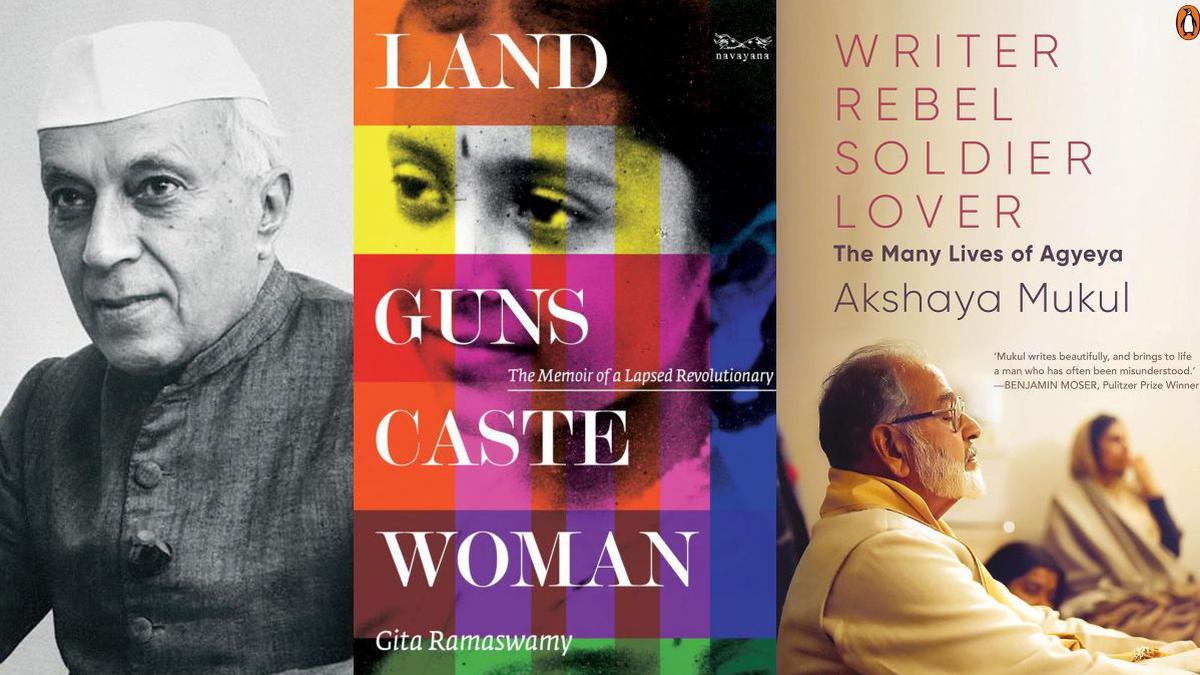
NIF Book Prize 2023 | Towards nation-building
The Hindu
Shortlisted for the Kamaladevi Chattopadhyay NIF Book Prize, these five books explore how India and its citizens have come to be. From women's role in drafting the Constitution to Delhi's challenges post-Partition, to a biography of Agyeya, a political memoir and reassessing Nehru's India, these books offer unique insights.
Women who helped draft the Constitution, Delhi’s unique challenges after Partition, the life and times of an influential, yet controversial, Hindi poet, a political memoir of a rebel, and reassessing Nehru’s India – the shortlist of the Kamaladevi Chattopadhyay NIF Book Prize explores “how the nation and its citizens have come to be.”
“Each book on the longlist presented important insights on the India in which we live, and deciding on a final selection was a difficult task. The five books finally selected in the shortlist illuminate our understanding of how the nation and its citizens have come to be,” the Jury, led by political scientist Niraja Gopal Jayal, said. The winner will be announced on December 1.
On the shortlist is Achyut Chetan’s Founding Mothers of the Indian Republic (Cambridge University Press), which is a deeply researched book, and shows how women participated actively when the Constitution was being framed, especially behind the scenes, pushing for the principles of equality, freedom and human rights for all.
Rotem Geva’s Delhi Reborn: Partition and Nation Building in India’s Capital (Stanford University Press) tells the story of how the city had to be remade after the twin events of Partition and Independence. Geva writes how India and Pakistan “became increasingly territorialised in the imagination and practice of the city’s residents”; how violence and displacement were part of the process and that there were tensions over belonging and citizenship.
Akshaya Mukul’s biography of Agyeya (Writer, Rebel, Soldier, Lover: The Many Lives of Agyeya/Penguin) sees the Hindi poet’s life as a microcosm of 20th century cultural history with its hopes and anxieties. Agyeya (1911-1987) was a towering figure in modern Hindi literature and a multi-faceted personality, wrote Purushottam Agrawal in his review for The Hindu. “His life was characterised by a nomadic, but deeply reflective exploration of physical spaces, abstract ideas, emotions and creative themes. He rightly wondered ‘how many boats he had boarded and how many times’ (Kitni Navon Mein Kitni Baar — the title of his Jnanpith-awarded poetry collection). He lived many lives and experienced many loves.... Due to his innovations and provocations, Agyeya left an inedible mark on Hindi poetry, fiction, criticism and travelogue, earning a host of bouquets and brickbats en route.”
Gita Ramaswamy’s memoir, Land Guns Caste Woman (Navayana), is the story of a Tamil Brahmin woman who tries all her life to shed the privileges of her caste, rebelling against its oppressive nature. In her review, Meena Kandasamy said it is the story of an educated middle-class intellectual who is absorbed into the Naxalite movement during the Emergency, only to eventually discover that the “possibility of democratic functioning in a party so deeply hierarchical was bleak.” It is a book like no other, she said.
India’s first prime minister’s vision was centred on secularism, socialism and non-alignment, but some of those ambitions remained a dream, argues Taylor C. Sherman in her book Nehru’s India: A History in Seven Myths (Princeton University Press). Placing Nehru on a pedestal was part of the nation-building narrative, particularly after his passing, says Sherman, who identifies herself as an admirer. In an interview to Varghese K. George, she said, “My project is not about Nehru-bashing. I actually admire Nehru. In today’s India we have two narratives about Nehru, we either bash him or defend him, but I am a scholar, so I just want to understand him. Actually, I am not interested in the man himself so much, but I am interested in his ideas and how they were debated at that time. I am interested in how the then elites understood these terms, how they debated and disagreed over the definitions.... I think he was aware of his limitations and that made him quite introspective about his power.”













